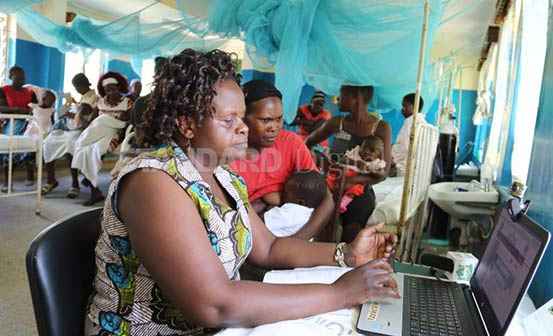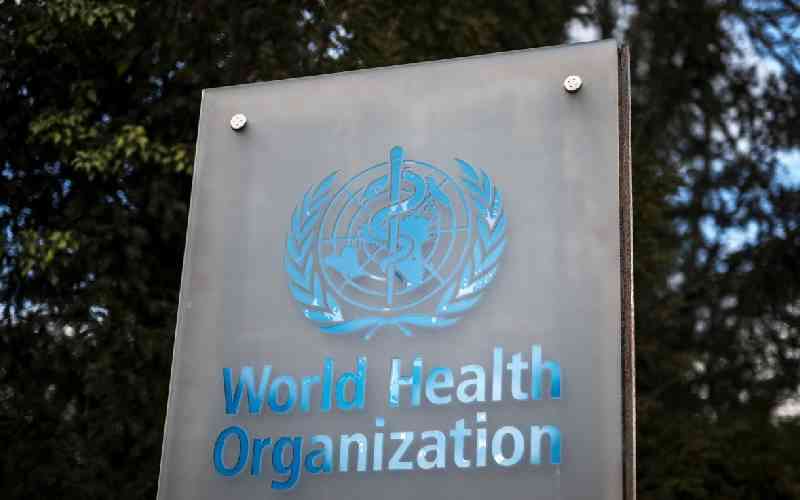
The Kakamega county administration will pay each woman Sh12,000 if the expectant mother registers for a programme that is designed to improve the health of newborns.
Under this programme the county calls the OparanyaCare Mama na Mtoto Fund, money is paid to ensure that newborns get nutritious meals and vaccinations so that they can grow strong and healthy. The scheme aims is to reduce mother-child mortality.
After attending four antenatal clinics, the expectant mother is paid the first tranche of Sh2,000, says Patrick Mutasia, the OparanyaCare Programme Communication Officer.
“If the mother delivers at a registered health facility through the aid of a skilled health worker, she is paid Sh2,000. The objective is to encourage expectant mothers to visit health facilities for antenatal care and to take care of their newborns,” Mutasia says.
Financial strain
The beneficiaries are then paid Sh2,000 six weeks after delivery when they attend clinic for immunisation.
Another Sh2,000 is paid six months later when the baby undergoes complete immunisation.
“At the ninth month when the child is immunised against measles, the nursing mother is paid Sh2,000. By the time the child is 18 months old, the mother will have received a total of Sh12,000,” Mutasia said.
Every financial year, the County Government allocates Sh90 million for the programme, which helps poor mothers access funds for their upkeep and the care of their children.
“This programme targets poor mothers who are unable to take care of their babies during and after birth,” he says of the initiative that was launched three years ago.
In the last one year, 40,568 of the 67,000 expectant mothers in the county delivered in hospitals or clinics.
And to encourage more women to deliver in hospitals, the programme has been launched in 25 hospitals across the county.
Eunice Adisa is among 21,000 mothers who have accessed these funds. She says found it quite hard to cope with the demands of motherhood before the fund was introduced, and so she had to find a way of ensuring that her first three children remained healthy without support.
“Medical services are expensive. I saw many mothers and their children die because they lacked support,” said Adisa. Many died of malnutrition owing to poor hygiene.
“It has been easier to raise my last born child because of the support I received from the county government to buy food and other necessities,” Adisa says. Another mother, Dorcus Amboko, says two of her children were born before the programme was introduced and the financial strain was almost unbearable. As a result, malnutrition was a common problem, and this took a toll on the health of her children.
However, her last born son, Centric Ikunza has been easier to raise under the OparanyaCare programme.
“I am grateful for devolution,” says Amboko.
The county administration says there have been fewer deaths of mothers under this initiative.
“We had a high mortality rate before launching the programme, but we have managed to reduce it. The infant mortality rate was 880 babies for every 100,000 mothers, compared to the national average of 488 babies for every 1,00,000 mothers,” says Mutasia.
He says more mothers are now seeking medical services and deliver in health facilities to benefit from the programme.
The County Government allocates Sh90 million for the programme every year, but many would-be mothers have been unable to benefit because even though they are poor, they are too young.
“So far, almost half the beneficiaries have been adolescents, with the youngest being only 13 years old. This makes it difficult to support them because they do not have national Identify Cards. For this reason, they are not eligible to own a sim card, yet we send money through M-pesa. We need to roll out the programme in all wards but funds are limited,” Mutasia observes.
Governor Wycliffe Oparanya is nonetheless upbeat about the initiative. “The programme has helped reduce maternal deaths during and after birth because mothers are attended to by skilled health workers. We are committed to supporting the programme to ensure its success,” says the Governor.
Peninah Mukabane, who is the county executive in charge of health, said they hope to increase the number of women who benefit from this scheme.
“We target to assist at least 33,000 mothers,” said Ms Mukabane.
 The Standard Group Plc is a multi-media organization with investments in media
platforms spanning newspaper print
operations, television, radio broadcasting, digital and online services. The
Standard Group is recognized as a
leading multi-media house in Kenya with a key influence in matters of national
and international interest.
The Standard Group Plc is a multi-media organization with investments in media
platforms spanning newspaper print
operations, television, radio broadcasting, digital and online services. The
Standard Group is recognized as a
leading multi-media house in Kenya with a key influence in matters of national
and international interest.











